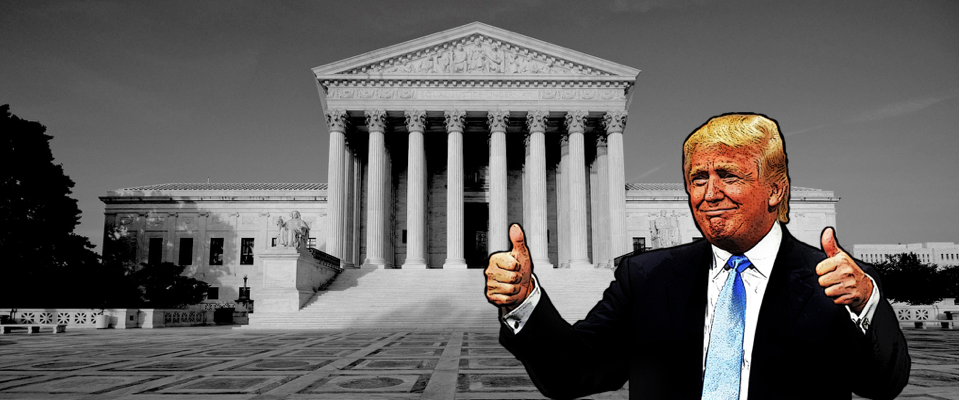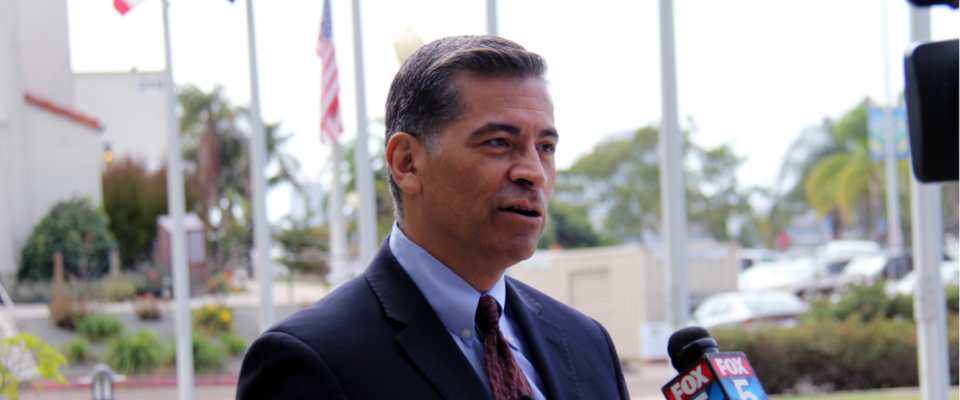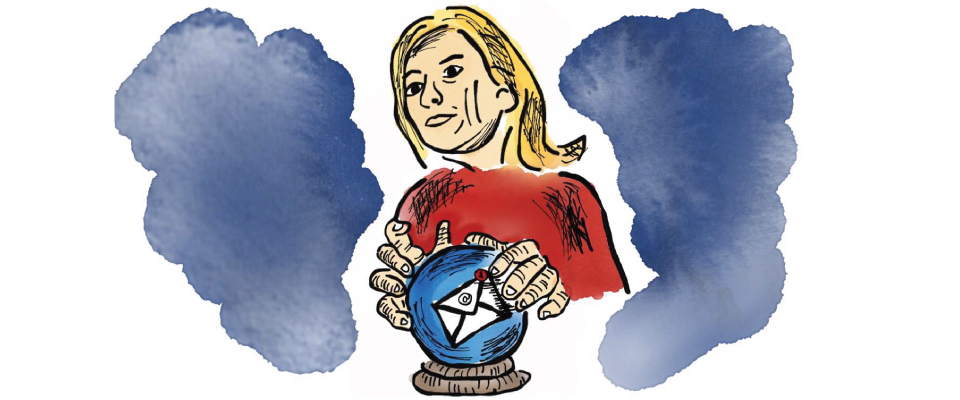Law professor John Yoo is an unabashed advocate for supreme executive authority—including the power to torture and detain military prisoners without charges. Does he have a point?
The blunt, cruel reality is an obdurate horror. Whether the news is personal or touches everyone, there is first the terrible word. Killing waters have breached the wall. Jets have hit the towers. The news is too terrible to contemplate, but it affords no escape. It weighs on us in pure existence: This is true. And for good or ill, the terrible news demands a call to action. Paradoxically, that action may start with a new idea.
On September 11, 2001, while most of official Washington fled, John Yoo remained at his desk in the Justice Department’s Office of Legal Counsel and contemplated the terrible news. It was not, for him, the flames in the sky, nor the bodies tumbling through the flames to earth that transfixed him. As a scholar, he had looked at violence and terror, from Civil War raids in Kansas to the works of the IRA, the PLO, and the other ruthlessness of our time. The Twin Towers’ destruction instead told Yoo that terror had announced itself in the era of globalization.
Yoo, the child of immigrants from South Korea, had studied Latin and Greek history at his parochial school in Philadelphia, diplomatic history at Harvard (summa cum laude), and constitutional law at Yale Law School. He thought about the implications for government in the emerging high-tech era. But the fires of September 11 were for him as different from theory as a discussion of atomic energy in 1938 was from the obliteration of Hiroshima. The proof was at hand, he felt. It was time to face some very unpleasant facts about who we are as Americans in a new war on polymorphous fronts.
He concluded that our nation’s most potent institutions—those at work on the battlefield and as part of the legal system—would have to move forcefully, too. And soon he acted.
“I saw that a small group can now attack us with the violence of a nation,” says Yoo, a professor at Berkeley’s Boalt Hall School of Law since 1993. “The Geneva Convention never recognized this kind of enemy.” Soon after September 11, Yoo advised the President of the United States that it was time to rethink the rules of war. It was time for America to think about secret detention, secret courts, and extracting information—even if it meant through torture.
Yoo’s advice (he does not openly claim authorship of the still-classified and therefore secret document) to George W. Bush had a double effect. Captured al-Qaeda leaders have been broken at American hands, either through fear, confusion, or violence. That has yielded information, Yoo insists, without furnishing hard data, that helped take down two-thirds of the group’s leadership, and adds: “Better than I would have thought.” No less, still another net result is that America is also seen as a torturer, a country that brings atrocities to the countries it claims to liberate, and has done so on the sly, with disregard for its own Constitution.
When the memos came to light, Yoo, an apparently cheerful and open man who says he has no trouble getting lunch companions from among the Cal law faculty, was denounced, picketed, and vilified as an architect of the atrocities of Abu Ghraib. Protesters shut down one class. He canceled an appearance when the police told him he might spark a riot. “I don’t want to be the cause of any kind of violence,” he says, flashing an ironic smile.
But he is sincerely attuned to the other paradoxes in modern war and politics. Violent interrogation, he notes, is far less violent than the killing of as many as 50,000 innocents in Iraq (a more traditional war that Yoo believes has drawn attention away from the new terror threat). Likewise, the deaths in all our other wars, or the blunders even in our so-called “just” modern wars, have been bad calls that killed thousands of bystanders. But the public thinks that Yoo’s kind of state-sponsored savagery is unacceptable, particularly if it is called “torture.”
Still, in the run-up to a full-fledged Congressional battle in late September over U.S. incarceration and interrogation conduct that his memo touched off, Yoo remained a darling of the right, a philosopher and justifier behind both the cause and the effect. A message on his office wall from his former boss, ex-Attorney General John Ashcroft, praises Yoo: “We are stronger and safer because of you.” Yoo clerked for Supreme Court Justice Clarence Thomas; on display is a bobblehead of the late Chief Justice William Rehnquist. Yoo breaks off an interview to gossip with the Republican chief counsel to the Senate Judiciary Committee, where ten years back he worked alongside a young lawyer named Ann Coulter, the self-described right-wing polemicist, author, and commentator. But the onetime Volvo-driving professor (he recently turned the vehicle in for an Infiniti) at America’s best-known liberal university, married to writer Elsa Arnett (the daughter of war correspondent Peter Arnett), also believes his colleagues had fallen short on an honest debate on whether America’s battle in a seething new world demands new reactions—namely, new forms of strategic violence—from our democracy.
His work has also been watered down since the memos became public, he believes, “forcing our agents in the field to work in a vacuum of generalizations.” He may have watered himself down, too. Though he winces when reminded that Bush, following the Abu Ghraib revelations, said that we Americans “do not torture,” Yoo himself now uses the euphemism “coercive interrogation” for a program that has reportedly included forcing prisoners to stand for hours in enforced positions, suffocation, and sleep deprivation.
He notes that, since the dawn of the Cold War, we have had extensive secret arms of government with few restrictions placed on them, while enacting sharper curbs on some civil liberties, such as background checks as a condition of employment, and plenty of ugly foreign adventures involving torture and assassination. We just did not talk about these much, he says, arguing that we should.
“Maybe during the Cold War we didn’t want to confront all this, because it was happening overseas,” he says. But now, he points out, “national borders are starting to decline, money moves easily, individuals have much more power because of technology.”
This reality is now a permanent part of our lives, he says, and the changes wrought in our world—the easy access to unimaginably powerful technologies (imagine bio-terror, easily engineered viruses, as the fire next time), will dominate the post-Bush years no matter who wins the 2008 election. He foresees a far more powerful presidency, too, as the country grapples with new realities.
“A really good question (in the 2008 presidential debates) would be whether the president can issue a preemptive attack on a nation supplying weapons to terrorists,” he says, asking in nearly the same breath: “Do you need congressional permission to launch a preemptive attack on a terrorist group? Should the government mine data to look for things?”
The power Yoo argues that the president should have—the right to authorize interrogation and indefinite detention without trials—is in keeping with national tradition, he says, defying his many critics. These times are akin to “the nationalization of the U.S. 100 years ago, when railroads and big corporations made states less powerful,” he insists, adding that “the response was more power to Washington, to the presidency, and it was argued over for 30 years.” Now, globalization means that the nation itself has less control over its affairs. Therefore the president needs even more authority, he reasons.
His argument was at the heart of the heated congressional public debate Yoo has long advocated. The debated ended on September 28 with the Senate voting to grant the president more discretionary power in establishing interrogation techniques and allowing for military commissions to initiate government prosecutions of high-level detainees. The most contentious issue—whether to strip detainees of their constitutional right to challenge their detentions in court—was also upheld. The House quickly followed suit, awarding President Bush, and therefore John Yoo, a victory.
Still, he predicts that “there will be a lot of tension between secrecy and democracy…there are going to be circumstances when we have to put pressure on people for information, and we will see what the American people want.”
Yoo’s eighth-floor Boalt Hall office looks west on the ebb and advance of fog on the bay and the bridge. A plump man who moves with a practiced grace, he navigates around law journals, memoranda, and books burdening the shelves and floor, including his 378-page volume from 2005 on the Constitution and the extent of presidential power in foreign affairs, and his just-published War by Other Means, justifying the post-9/11 memos, and other arguments for conveying larger powers to the president.
Yoo sets out what he sees as the nature of the post-9/11 war. It is with al-Qaeda’s network, a widely dispersed enemy with real form, he believes, not with shadowy concepts. “The War on Terror,” for his money, is just a term resulting from bad political campaigning. In a systematic, lawyerly fashion, Yoo then sets out to justify all the extraordinary measures taken by the administration: The Geneva Conventions did not anticipate this enemy. Assassination is appropriate—the key to war in a networked world is to eliminate the most powerful nodes in your opponent’s network. Information Age terror networks require more surveillance and wiretapping. Guantanamo’s jails are where you contain the enemy, yielding as little information as possible to the other side. High-pressure interrogation is how you figure out your opponent’s network and his threats, and secret military commissions are where you decide his ultimate fate. Detention and information extraction are the key weapons, he emphasizes. In a dangerous world, where information will ultimately save thousands of lives, the concept of guilt or innocence is collateralized as an afterthought.
In Yoo’s opinion, al-Qaeda is a network, much like the protean Internet that al-Qaeda relies on for communications and publicity. Battling it requires gaining enough information (usually from people, but also from bank accounts, travel records, and other data patterns) to take out the primary nodes in the network. You get information from people by pressure, in all forms necessary. Stated so simply, the complexities of state violence almost vanish, something that apparently appealed to the Bush administration.
Yet Yoo has also written an intemperate and hurried book, with passages he may regret. He does himself no favors describing the real estate beachfront potential of the sparkling waters around the U.S. military facility of Guantanamo Bay, Cuba. His complaints about being victimized by the media, wrong about secret documents and hidden prisons, smacks of disingenuousness in a volume supposedly meant to spark debate. These will probably get more attention than his chief message: We must adapt ourselves to the changes wrought by technology in the hands of our enemies.
Yoo’s problematic tone (“If Geneva Conventions rules were applied…we would be able to ask Osama bin Laden loud questions, and nothing more”) may reflect his own frustration with trenchant language in a time of extreme change. Al-Qaeda appears at first as little more than a gang, a criminal organization. Yet al-Qaeda has shown a desire and capability to kill thousands of Americans, and would like to destroy this and other democracies. That means war. But al-Qaeda has no territory, no tanks, and no ports to bomb. What is there to attack? How do you measure progress? When do you mark this war’s ending?
“I don’t buy the idea that it is a permanent war,” Yoo says, and is immediately tangled up. “You can have a war model for this and assume brief periods of peace, or some hybrid” of peace and war, he tries to explain. But it’s hard to see a hybrid that is not very much like war itself.
Yoo does not say much about the efficacy of torture, but he does offer some evidence of its outcomes: “Obviously one cannot say that any interrogation method always works or always fails. It will be context specific,” he says. “But the president and members of Congress have said publicly that the use of coercive interrogation methods elicited intelligence from al-Qaeda leaders like Abu Zubaydah, al-Qaeda’s chief military planner, and Khalid Sheikh Muhammad that allowed authorities to prevent attacks on the United States.”
Like many advocates, Yoo is also capable of making his case by ignoring realities on the other side. He writes dismissively of a “torture narrative” his critics spout, which links interrogation at Guantanamo to the abuses at Abu Ghraib prison. But he ignores that Maj. General Geoffrey Miller, who commanded Guantanamo, was also at Abu Ghraib, or that many methods of humiliation and fear (threatening dogs, women’s underwear on men’s heads, prolonged sleeplessness, sensory deprivation, threats of spreading rumors about someone’s sexuality) were identical in both places. Still, he insists, “the Administration thought (torture) was for higher-ups” in al-Qaeda, and “never intended for Abu Ghraib…that was chaotic, unprepared. There is no connection.”
The firestorm of publicity around Abu Ghraib, perhaps al-Qaeda’s greatest publicity victory after the Twin Towers, underlines a paradox Yoo never explores in his book: How, in the Information Age, both publicity and secrecy are amplified as never before. The media are a key element for both sides in the conflict. On the one hand, al-Qaeda does not just behead, in its savagery it distributes videos of the action to gain recruits. On the other, the Bush administration’s extreme secrecy sparks scrutiny and questioning of its tactics—more, Yoo believes, than would have arisen if torture and rendition had been openly debated and legislated in the post-9/11 fury and overt patriotism that engulfed America.
Yet Yoo also believes that the key to winning this war is more secrecy. Torture should be debated, allowed, and then not talked about again once admitted, he says. “A tension between secrecy and democracy,” he calls it, as the kind of secrecy we associate in much of our postwar foreign affairs, from the CIA’s covert actions and the NSA’s secret charter, to billion-dollar spy satellites, is exercised in a globalized world.
Bluntly put, presidential power will continue to grow, as people look for decisiveness amid uncertainty, he says, adding: “A lot of the things that happened in response to 9/11 Gore would have done too. Whoever the next president is, Democrat or Republican, they will see that the things they face demand a lot of flexibility.” In the face of terror attacks, he says, “Congress has been pretty approving, so the critics may not like what they get.”
But then, neither may Yoo. A graduate of the executive, legislative, and judicial floors of the sausage factory that is American politics, the government lawyer and academic knows the outcome will not be pretty or perfect. It may not even be the kind of open debate he wants. He would rather see the FBI that was built to investigate crimes after the fact replaced with an organization dedicated to preemptive intelligence gathering and action, but he doubts that will happen. The Department of Homeland Security, another layer of bureaucracy on top of existing institutions, seems a ponderous and dubious institution next to the dynamic and pliable networks of the new world.
Most uncertain of all is the legacy of John Yoo in the moral debate over the Constitution and its proficiency in a menacing world. Democracy, like no other form of government, makes us all actors in the state. We are, to some extent, what the state does, and thus we are all complicit in the violence of the state. Even if we again receive the terrible news of an attack, and again demand action, are we prepared to look into the mirror put up by his new reality, and be as brutal as John Yoo believes we must become?
Yoo accepts that people revile him for just raising these brutal questions, but he is adamant. “These questions are extremely hard,” he acknowledges. “The only wrong thing is for either side to pretend that there is a single obvious answer. Rejecting the idea that the issues have changed reflects an arrogance that we have all the answers.”
Quentin Hardy lectures at the School of Information Management and Systems. He is also the Silicon Valley bureau chief of Forbes magazine.
From the November December 2006 Life After Bush issue of California.





















